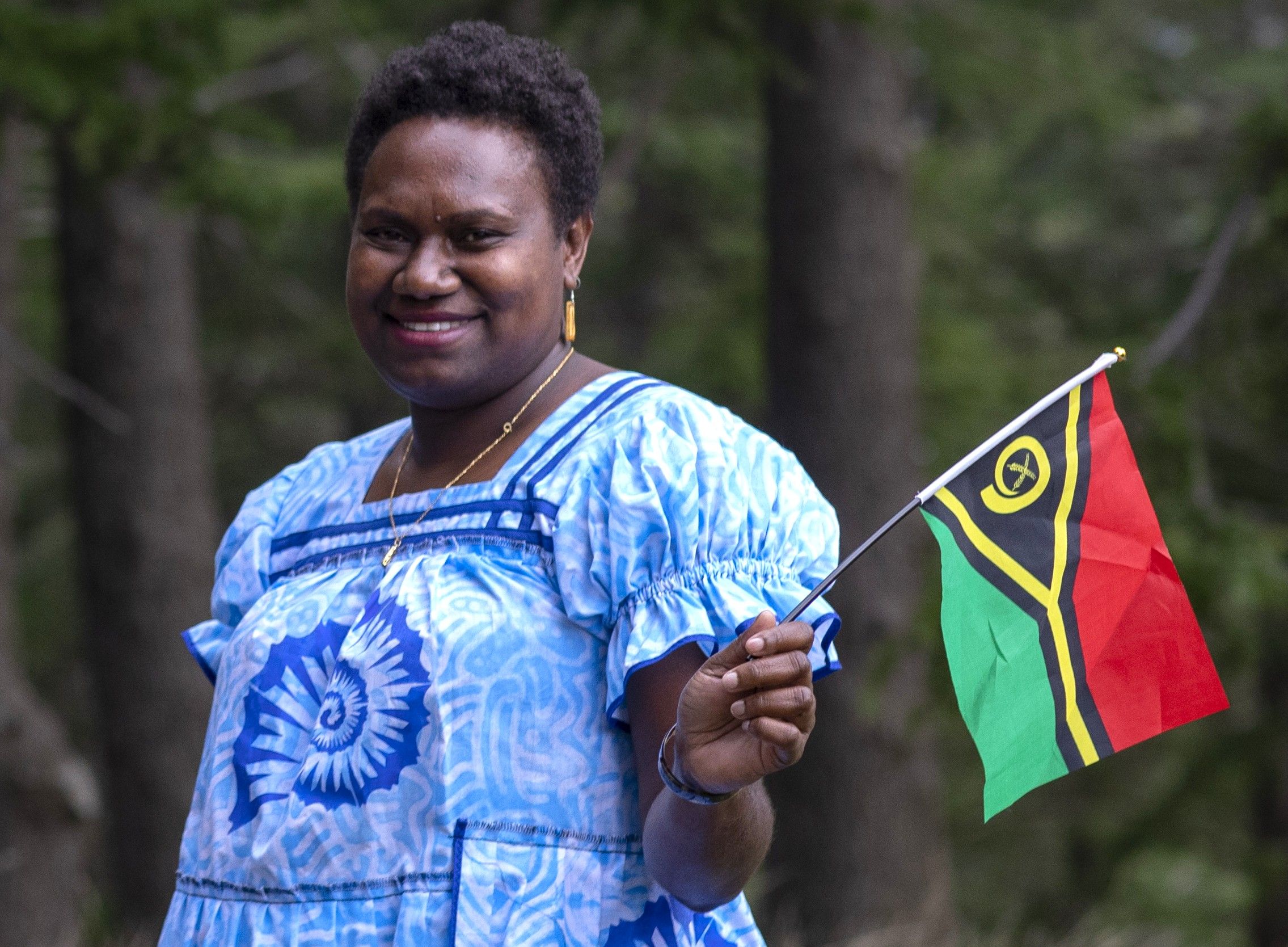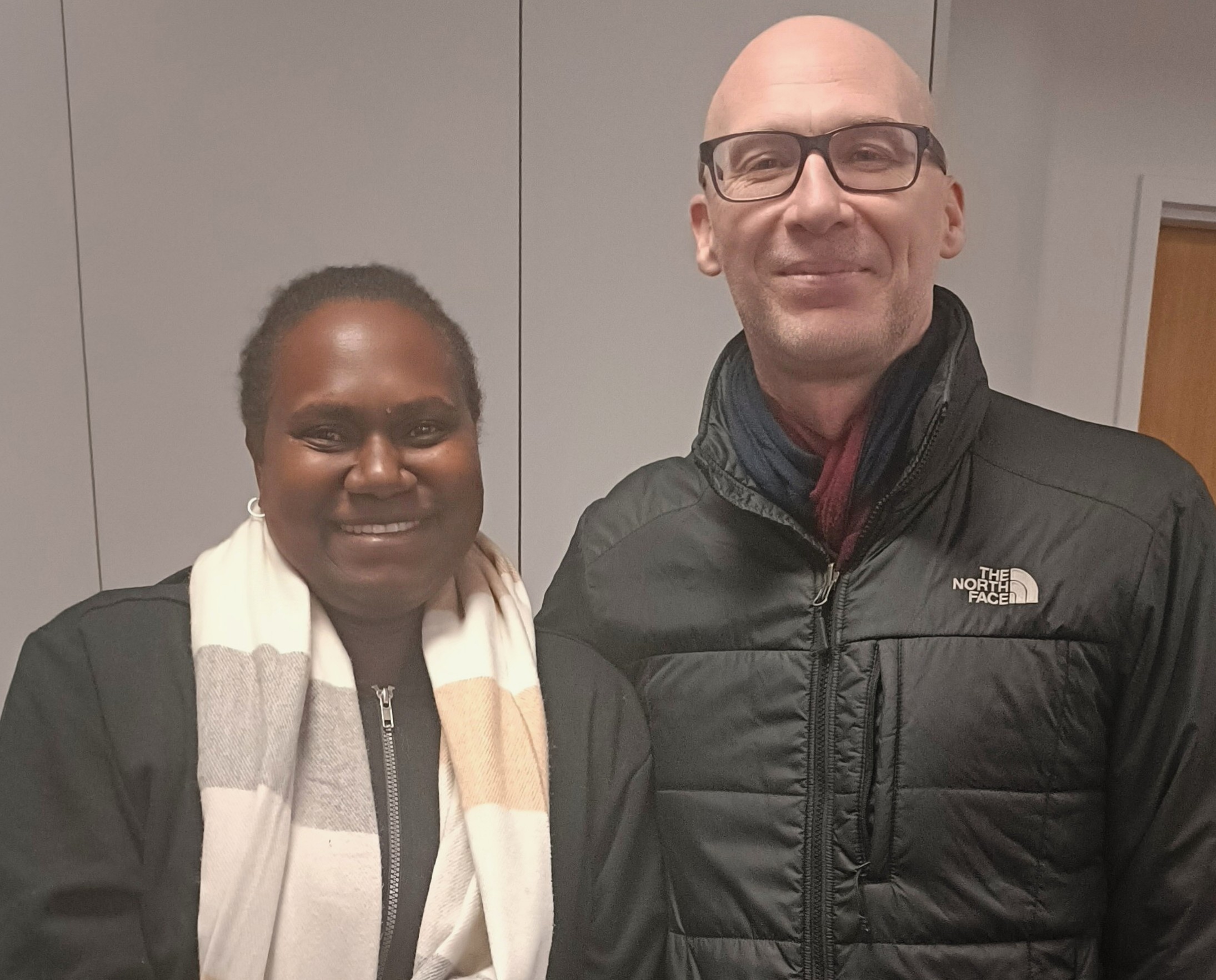
WLI alumna and secondary school teacher from Vanuatu, Leisale Roberts, is passionate about the preservation of Indigenous cultures and languages. For over 10 years, she has taught English and Social Sciences to junior and high school students in Vanuatu who come from diverse linguistic backgrounds.
In 2017, Leisale was the recipient of a Vanuatu Government scholarship to undertake her bachelor’s degree in Secondary Education (Language and Literature) at The University of the South Pacific in Suva, Fiji. She went on to earn her Postgraduate Diploma in Arts (Linguistics) from the same university.
Through her Master of Philosophy at James Cook University under the Australia Awards Scholarships, Leisale is researching the experience of children whose first language is Lewo, her own native tongue, in the hopes of promoting and protecting the use of Indigenous languages in Vanuatu. She hopes to share her research outcomes with her community and inspire young women to step into leadership and speak up to share their knowledge.
Working together to preserve Pacific languages
Having completed her field work and reached the final report writing phase of her studies, Leisale was keen to further her learning through the WLI Leadership and Mentoring program, which is available for WDLP participants and alumni.
Having successfully obtained a place on the mentoring program, Leisale highlighted The Acquisition Sketch Project as an initiative she was keen to be involved with. She also pinpointed one of the project team’s members – Evan Kidd, a Professor of Linguistics at The Australian National University with a special interest in psycholinguistics – as a potential mentor.
“Being able to acquire mentorship from someone from my field of interest was a dream come true,” says Leisale. “Evan’s research interests lie within the field of psycholinguistics, specifically in language acquisition and language processing, which closely relates to my study field and my thesis Child Language Acquisition: A study in Lewo, Vanuatu. He also works with other researchers and linguists on the Sketch Acquisition Project; an ongoing project to get comparable acquisition data on child language for understudied languages of the world. This captured my attention because I have used the guidelines from their project to collect data for my project.”
Through her mentorship with Evan, Leisale hoped to get linguistic advice on the methods used to collect child language data, insights into the data analysis and the ELAN software, an annotation tool for annotating and transcribing languages.
“Evan has been a great advisor during the write up of my thesis and has been instrumental in offering advice on what to include in my writing. He has not only offered helpful feedback; he’s also been a great listener. And even though my mentorship is now complete, he continues to offer advice, reaches out to see how I am doing, and shares opportunities for potential PhD scholarships with me,” says Leisale.

A good match
Reflecting on his first experience as a WLI mentor, Evan explains why he was keen to participate in WLI’s mentoring program, and why him and Leisale made such a good pair.
“I wanted to be involved because I am committed to increasing the diversity of researchers in the field, and because Leisale was working on a topic that I’m very interested in; the acquisition of Indigenous languages of our region,” says Evan.
“We were a good match both in terms of our research interests and our personalities. I have worked on child language acquisition of a language in Papua New Guinea, and Leisale's work in Vanuatu is a similar context. We also got along great and it was a pleasure helping Leisale navigate the challenges of completing a thesis for a higher degree, as well as giving advice on aspects of academia that are not always explicitly taught, such as what the scope of a thesis should be, what conferences to attend, and how to plan for the next stage of her career.”
Evan also explains how he feels a responsibility to “building a strong future generation of researchers”.
“For a field like child language acquisition, which is highly concentrated in the Global North and tends to over-study widely spoken languages like English, this means training researchers who can study languages of their region. My hope was always that Leisale would come out of the process understanding that her work is valuable and that there is an important role for her as a researcher within the regional and global academic community.”
Forging a friendship
For both Leisale and Evan, the mentorship was a two-way street in terms of professional and personal growth – as well as friendship.
“It was a true privilege to help Leisale navigate her desire to study how children learn Lewo. And I definitely grew professionally – mentoring encourages you to reflect upon your own path and how you might help others learn,” says Evan.
Leisale also felt very lucky to have Evan as a mentor and feels “she has gained many skills and knowledge from the mentorship initiative,” – as well as a widened professional network and a friend for life.
“Through Evan and this mentorship program, my linguistics network and professional opportunities has grown so much. I was fortunate to attend both the ALS Annual conference and Conference on Oceanic Languages, where I presented some of my research findings. I now not only have a renowned linguist and researcher as my professional mentor, but I can comfortably say that Evan has become a friend that I can easily call upon when I need advice on a language matter,” says Leisale.
In response to whether she’d recommend the WLI’s mentoring program, Leisale is unequivocal in her response.
“I would definitely recommend the mentorship program to fellow WLI alumni. Like it was for me, it may be a once-in-a-lifetime experience where you can meet and learn from your favourite expert in your field.”
Learn more about the WLI Leadership and Mentoring program.
